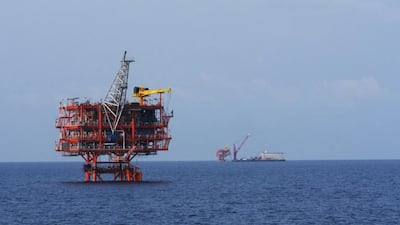Abu Dhabi-based Mubadala Petroleum is planning to expand its operations in South-East Asia as it seeks to tap into growing demand for electricity in the region.
"For the moment, ... most of the demand post-Covid-19 or growth rather will happen in the Asean region. You are talking about double-digit growth in demand for electricity," Mubadala Petroleum's chief operating officer Mazin Al Lamki told the Future Energy Asia conference that was held online on Wednesday.
The Association of South-East Asian Nations is a 10-member economic bloc comprising Brunei, Cambodia, Indonesia, Laos, Malaysia, Myanmar, the Philippines, Singapore, Thailand and Vietnam.
Mubadala Petroleum, a unit of Abu Dhabi’s strategic investment firm Mubadala Investment Company, is actively exploring and developing hydrocarbon assets in South-East Asia.
UAE state entities such as Adnoc and Mubadala Investment Company have previously signed multibillion dollar agreements to explore upstream and downstream opportunities with Indonesia.
Mubadala Petroleum also operates assets in Thailand and Malaysia.
The company is currently working on a "new strategy" to diversify its energy portfolio, Mr Lamki said.
"[It] will cover every aspect of our energy business and I would like to emphasise the word ‘energy’ as opposed to oil and gas," he said.
The company is committed to South-East Asia, according to Mansoor Al Hamed, Mubadala Petroleum's new chief executive. The region is also battling a second wave of Covid-19 infections due to the more virulent Delta strain.
"Like every industry, the energy sector has been significantly [affected] by Covid-19," he said.
"In South-East Asia it is clear that there is still some way to go before the tide is decisively turned."
He highlighted the region's continued drive to phase out coal, as critical to energy transition efforts.
"In China, coal-to-gas switching has led to a 78 per cent improvement in Beijing’s winter air quality over the past five years. There is no reason this should not be repeated in South-East Asia," said Mr Al Hamed.
"Not only is this vital in terms of energy transition, but we know that energy demand in the region is growing."


